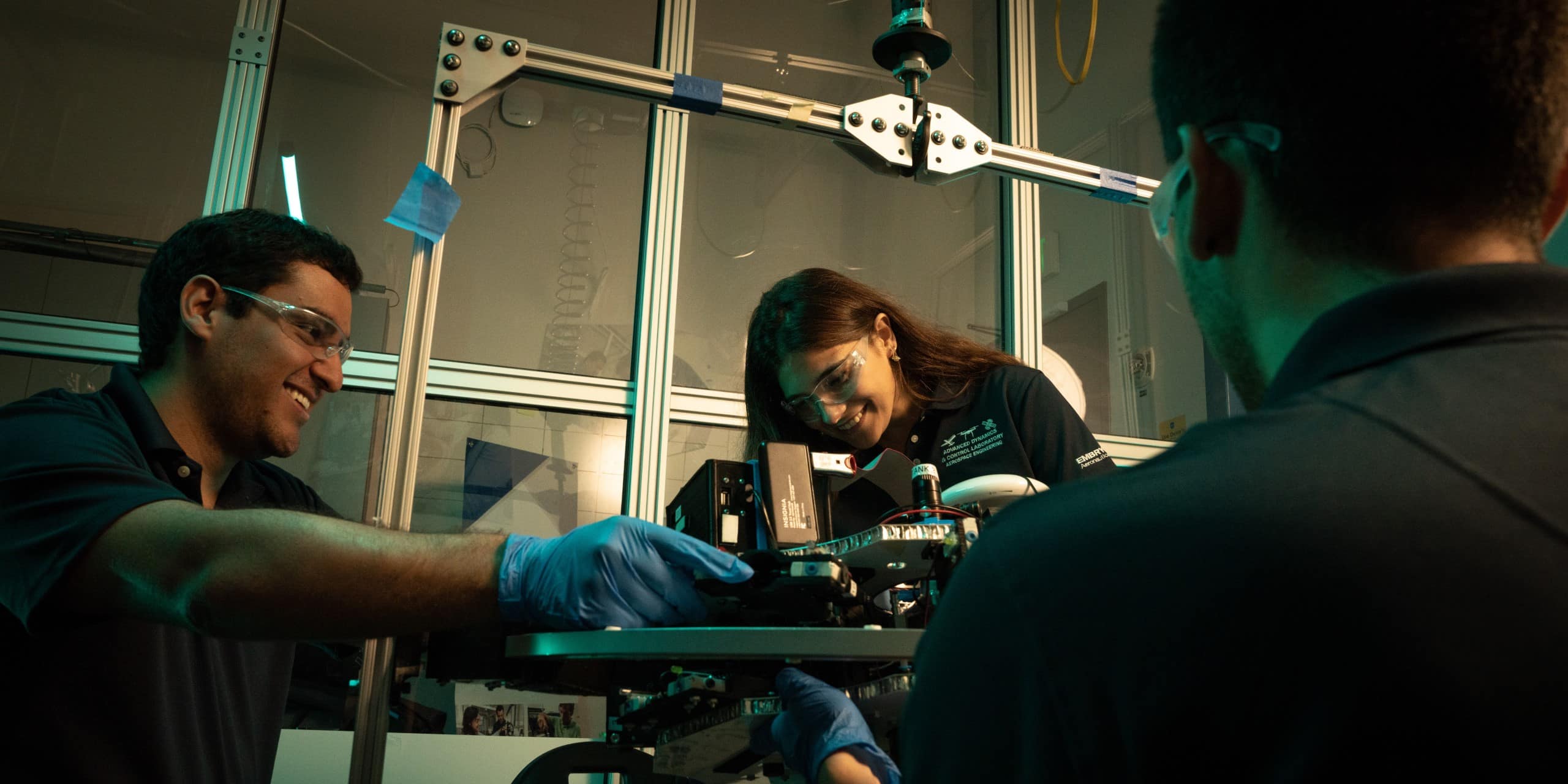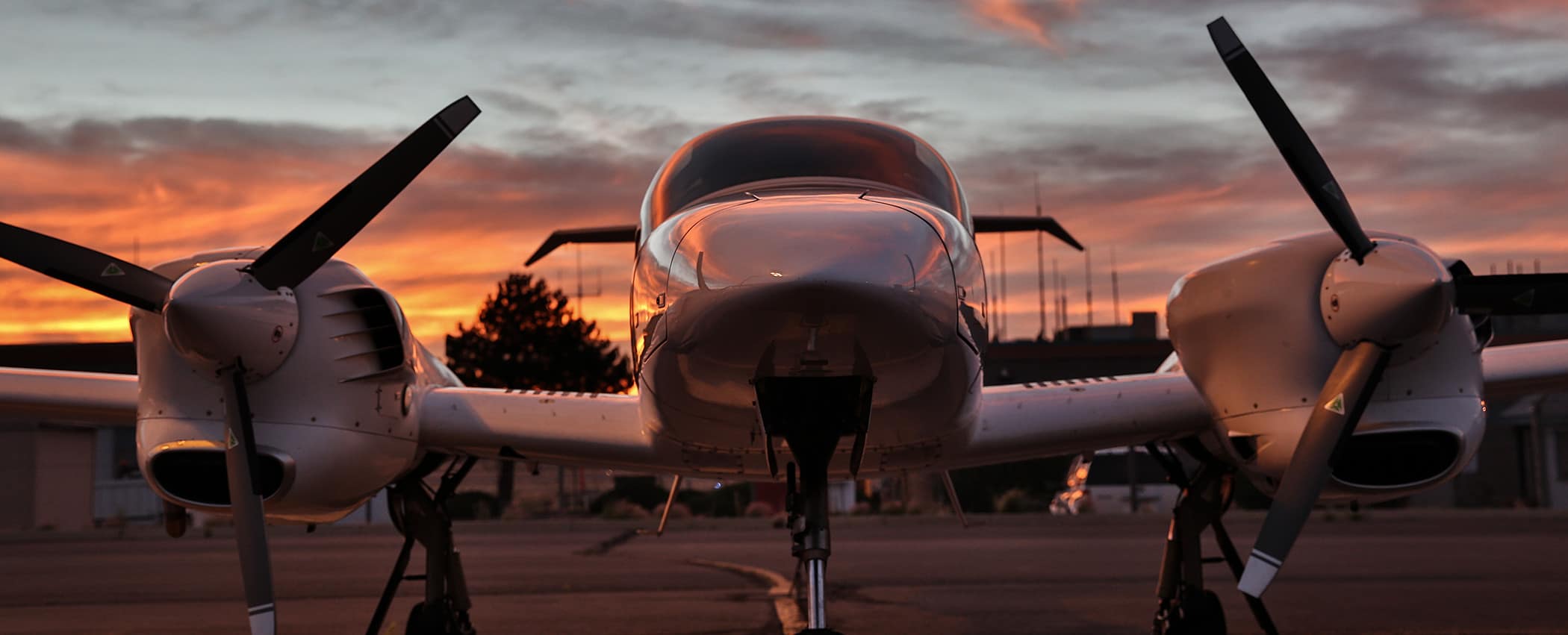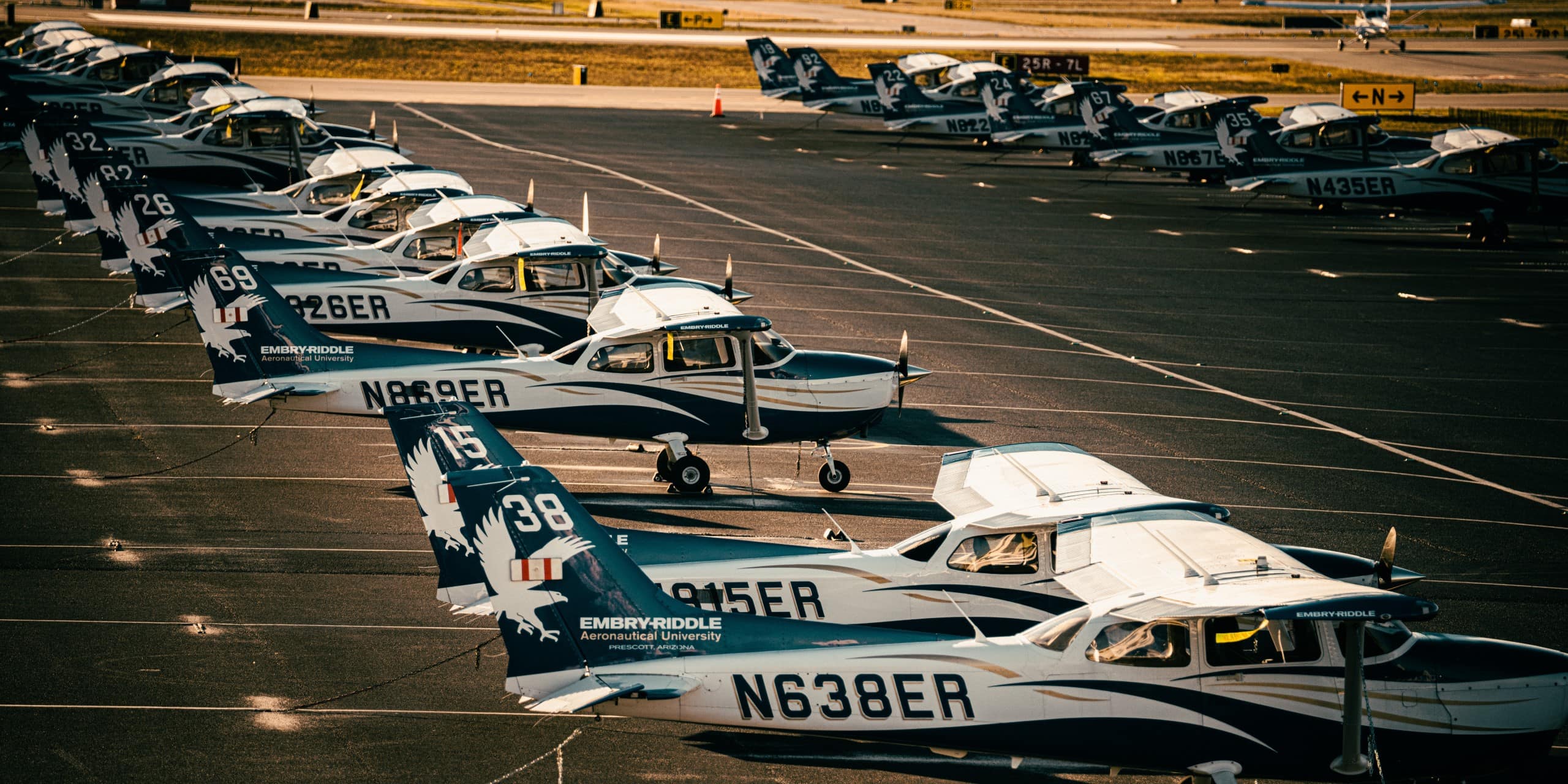
Master of Science in
Aviation and Aerospace Sustainability
The MSAAS focuses on recent advances in science, practice and innovation to better understand, analyze and apply aerospace sustainability strategies.
About the Master of Science in Aviation and Aerospace Sustainability
Working to grow the aviation/aerospace industry while aiming for a sustainable business is a demanding and necessary pathway. Aviation authorities and organizations around the globe aim to maximize efficiency and satisfy global demand while also meeting responsibilities to future generations. To propel this movement, forward-thinking experts in aviation are urgently needed.
If you’re ready to make a significant difference in creating a sustainable aviation/aerospace industry, Embry-Riddle’s online Master of Science in Aviation and Aerospace Sustainability (MSAAS) will place you on the right path. Sustainable Aviation Fuels (SAF) pathways and their life cycle assessments are main topics in the current state of aviation sustainability.
These topics are part of the courses this online graduate program offers, combining theory and practice on how technical advances and improved management practices can help companies meet both operational and sustainability goals. Graduates from the MSAAS program obtain the necessary skills and expertise to move the aviation/aerospace industry forward with technologies and practices for a sustainable future.
Why You Should Study this Degree
Aviation and Aerospace Sustainability focuses on sustainability pathways, SAF, aircraft decommission, aviation sustainability policies and emission schemes, i.e. CORSIA & EU-ETS. A career in aviation sustainability may be for you if you:
- Are concerned about sustainable aviation
- Enjoy researching aviation science and sustainability
- Have a passion for climate change factors
- Like learning about innovative technologies
Student Learning Outcomes
You will have the opportunity to complete the following while pursuing your MSAAS:
- Evaluate the application of environmental tools and policy schemes in the aviation and aerospace industry.
- Create sustainable operations for the aviation and aerospace industry.
- Apply leading-edge sustainable aviation and aerospace technologies and solutions.
- Create sustainable best management practices for economic sustainability.
Aviation and Aerospace Sustainability Career Opportunities
Careers and Employers
Embry-Riddle Aviation and Aerospace Sustainability graduates often promote in the workforce with a placement rate of 100% within a year of graduation, with industry leaders such as:
- The Boeing Company
- International Civil Aviation Organization (ICAO)
- International Air Transport Association (IATA)
- Major Airlines
- Pratt & Whitney
- SAF suppliers
Aviation sustainability graduates often secure roles as:
- Aviation Fuel Managers
- Aviation Sustainability Managers
- Chief Sustainability Officers
- Sustainability Consultants
Aviation and Aerospace Sustainability Salary Information
Pursuing a degree in aviation sustainability from Embry-Riddle Aeronautical University provides graduate students with competitive salaries averaging $84,300 annually as of 2022.
DETAILS
This offering is available at the following campuses. Select a campus to learn more.






